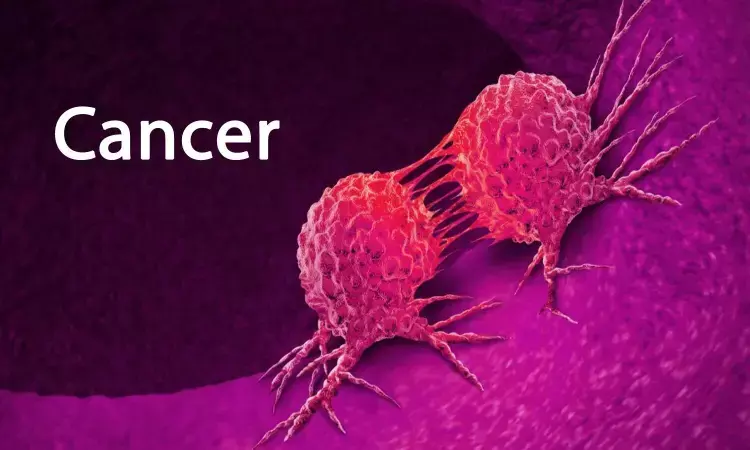- Home
- Medical news & Guidelines
- Anesthesiology
- Cardiology and CTVS
- Critical Care
- Dentistry
- Dermatology
- Diabetes and Endocrinology
- ENT
- Gastroenterology
- Medicine
- Nephrology
- Neurology
- Obstretics-Gynaecology
- Oncology
- Ophthalmology
- Orthopaedics
- Pediatrics-Neonatology
- Psychiatry
- Pulmonology
- Radiology
- Surgery
- Urology
- Laboratory Medicine
- Diet
- Nursing
- Paramedical
- Physiotherapy
- Health news
- Fact Check
- Bone Health Fact Check
- Brain Health Fact Check
- Cancer Related Fact Check
- Child Care Fact Check
- Dental and oral health fact check
- Diabetes and metabolic health fact check
- Diet and Nutrition Fact Check
- Eye and ENT Care Fact Check
- Fitness fact check
- Gut health fact check
- Heart health fact check
- Kidney health fact check
- Medical education fact check
- Men's health fact check
- Respiratory fact check
- Skin and hair care fact check
- Vaccine and Immunization fact check
- Women's health fact check
- AYUSH
- State News
- Andaman and Nicobar Islands
- Andhra Pradesh
- Arunachal Pradesh
- Assam
- Bihar
- Chandigarh
- Chattisgarh
- Dadra and Nagar Haveli
- Daman and Diu
- Delhi
- Goa
- Gujarat
- Haryana
- Himachal Pradesh
- Jammu & Kashmir
- Jharkhand
- Karnataka
- Kerala
- Ladakh
- Lakshadweep
- Madhya Pradesh
- Maharashtra
- Manipur
- Meghalaya
- Mizoram
- Nagaland
- Odisha
- Puducherry
- Punjab
- Rajasthan
- Sikkim
- Tamil Nadu
- Telangana
- Tripura
- Uttar Pradesh
- Uttrakhand
- West Bengal
- Medical Education
- Industry
Tokyo Medical and Dental University, Fujitsu supercomputer helps perform cancer gene network analysis

Tokyo: Tokyo Medical and Dental University (TMDU) and Fujitsu Laboratories Limited have recently completed, in less than a day, estimation of the network that represents the influence relationship between genes and prediction of their relationship with infiltration and metastasis based on genes highly likely to be involved in cancer development.
TMDU and Fujitsu achieved this leveraging Fujitsu Laboratories' explainable AI technology "Deep Tensor" with the world's fastest supercomputer, Fugaku, which was jointly developed by RIKEN and Fujitsu. The project was conceived under the theme of "elucidation of the cause and diversity of cancer using large-scale data analysis and AI technology" as part of the supercomputer Fugaku achievement acceleration program being promoted by Japan's Ministry of Education, Culture, Sports, Science and Technology from May 2020 to March 2023.
Even with supercomputers available at universities, it previously took several months to extract network structures representing the behavior of genes likely related to the disease state of cancer from genetic data and to predict the disease state. This presented difficulties to researchers working to discover new mechanisms of cancer that could not be understood at the individual gene level and incorporate these findings into research.
Harnessing the power of the world's fastest supercomputer, Fugaku, Fujitsu and TMDU were able to extract a network representing the regulatory relationships among genes in epithelial cancer cells from the analysis of data with 20,000 genes, predict their relationship with infiltration and metastasis using Deep Tensor technology developed by Fujitsu Laboratories, and present prediction models.
Moving forward, TMDU and Fujitsu Laboratories will continue to shed light onto capturing the causes and diversity of cancer, as well as contribute to the enhancement of industrial competitiveness by accelerating the use of the supercomputer Fugaku in the field of AI.
Read also: TataMD launches new diagnostic testing for COVID-19
Ruchika Sharma joined Medical Dialogue as an Correspondent for the Business Section in 2019. She covers all the updates in the Pharmaceutical field, Policy, Insurance, Business Healthcare, Medical News, Health News, Pharma News, Healthcare and Investment. She has completed her B.Com from Delhi University and then pursued postgraduation in M.Com. She can be contacted at editorial@medicaldialogues.in Contact no. 011-43720751


